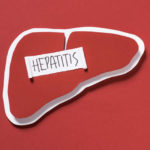Pegasys Better Than PegIntron?
From the following article it seems there is a real advantage for Hepatitis c patients to choose Pegasys from Roche over PegIntron from Schering. The higher early response rates are encouraging. Of course, this is still comparing the best of two treatements that are considered by most people to be inadequate.
If one is deciding to undergo treatment for Hepatitis c, however, it is helpful to know that one choice might be better than another. Even if the difference is miniscule, any positive difference is important.
Bear in mind, this is just one study. Most researchers would not find this conclusive, just instructive.
If I were to choose to undergo interferon treatment for Hepatitis c (NOT currently on my list of things to do seeing as the success rate for genotype 1 is so miserably low) I would probably choose Pegasys for other reasons (I think Roche’s patient support is better, for one). This recent information only reinforces the preference.
Drug Combination Shows Promise in Treating Hepatitis C
ST. LOUIS–October 30, 2004 — Interim study results indicate a certain drug combination treatment may suppress the hepatitis C virus more quickly than another.
Researchers at Saint Louis University School of Medicine and six other research sites throughout the country found that combining the drug Pegasys® with ribavirin resulted in a greater reduction in hepatitis C viral levels than patients treated with Peg-Intron® and an equal dose of ribavirin.
Pegasys and Peg-Intron are types of pegylated alpha interferon–which is a longer lasting version of interferon, a naturally produced substance in the body that triggers the immune system. Combining these drugs with ribavirin enhances their efficacy and is the standard treatment for hepatitis C.
“It looks as though Pegasys is more potent during the early phase of treatment, which is critical for patients with chronic hepatitis C,” said Adrian M. Di Bisceglie, M.D., professor of internal medicine in Saint Louis University School of Medicine’s division of gastroenterology and hepatology, and the study’s lead investigator. “It’s critical because if patients are going to respond to treatment, it will happen during the first 12 weeks of care. Eight weeks into this trial we noticed lower viral levels in patients on the combination of Pegasys and ribavirin.”
This is one of the first head-to-head studies in the United States comparing Pegasys and Peg-Intron when each are combined with equal doses of ribavirin. Pegasys is the most recent form of pegylated alpha interferon approved by the Food and Drug Administration (2002).
Di Bisceglie helped design the study and evaluate the preliminary results.
Di Bisceglie will present his findings at the 55th annual meeting of the American Association for the Study of Liver Diseases in Boston on Oct. 29.
Di Bisceglie said the ultimate goal of therapy is to clear patients of the blood-borne virus or have levels drop so low as to be undetectable. While the Pegasys results are positive, Di Bisceglie cautioned it is too soon to draw conclusions. The 12-week trial is still under way.
“Studies such as this one give us insight into how these drugs work and it might allow us to design better drugs in the future,” said Dr. Di Bisceglie, one of the top liver disease experts in the world.
About 4 million Americans carry antibodies to the infection, which means they have been exposed to hepatitis C. Of that group, about 70 percent actually have the virus and will become symptomatic. The symptoms at first may be subtle: fatigue, abdominal discomfort, general malaise. While carriers ignore or misinterpret symptoms, the virus is eating away at their livers. If left undetected or untreated, chronic hepatitis C irrevocably damages the liver and a transplant may be necessary. Saint Louis University School of Medicine has one of the largest hepatitis C treatment and research programs in the country.







